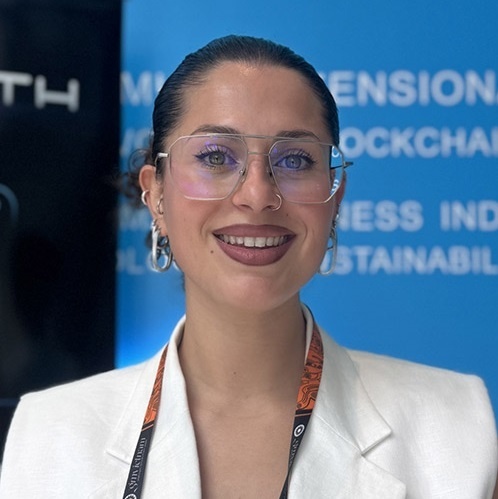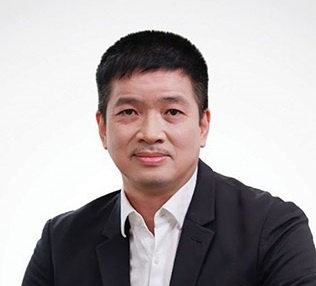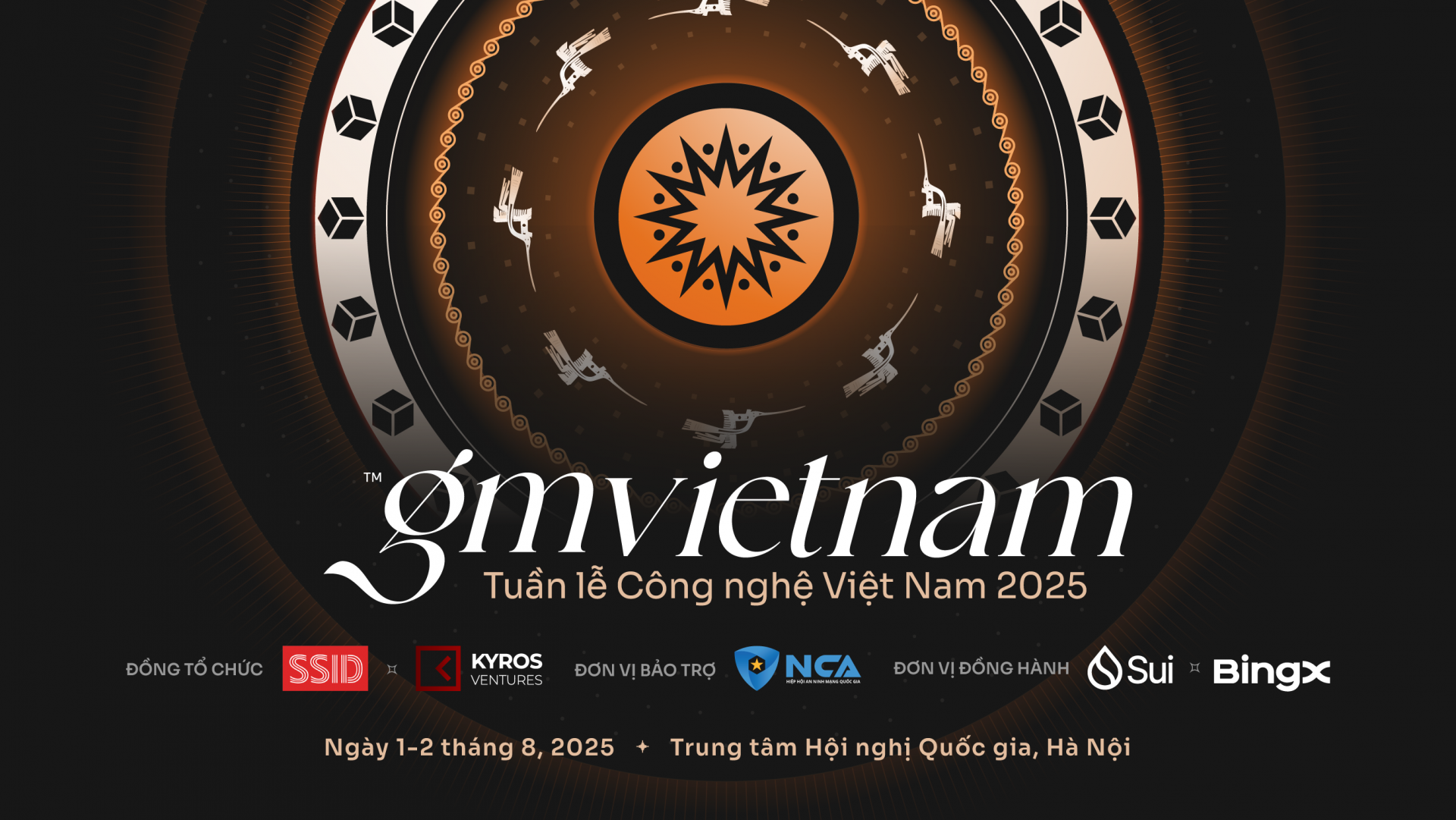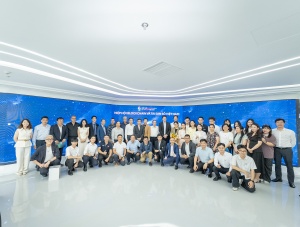INTERNATIONAL INVESTMENT
AND PORTAL
The signing of an MoU between Dunamu, the operator of South Korea’s largest cryptocurrency exchange Upbit, and MB Bank took place last week, marking a collaboration to develop the digital financial ecosystem and move towards establishing the first digital asset exchange in Vietnam.
“Vietnam has huge potential with over 20 million people owning digital assets, trading volumes exceeding $800 billion, and ranking fifth in the world for investment flows into blockchain assets,” said Oh Kyoung-suk, CEO of Dunamu. “When this potential combines with Upbit’s model, it will create an opportunity to build not just an exchange, but the entire digital financial infrastructure of Vietnam.”
The agreement between Dunamu and MB is set against the backdrop of efforts to bring digital assets into a legal framework, especially as the National Assembly has passed the Digital Technology Industry Law, which will come into effect in 2026.
Accordingly, Dunamu will provide technology and operational expertise for Upbit while also supporting MB in building systems, investor protection mechanisms, and developing high-quality workers.
Dunamu is currently the third-largest cryptocurrency exchange in the world, processing over $1.1 trillion in total trades and managing assets exceeding $11 billion.
The total trading volume of cryptocurrency assets in Vietnam is projected to have reached $120 billion last year, with one in every five Vietnamese owning digital or cryptocurrency assets, according to Chainalysis.
Truong Gia Binh, chairman of FPT, stated that Vietnam currently holds a unique geopolitical position in the world, having established comprehensive strategic partnerships with 12 leading countries. Only two countries worldwide have software companies generating over $1 billion in revenue – India and Vietnam.
“Vietnam needs to assert its sovereignty over the blockchain space, just like all developed countries. We are also building emerging financial centres, not just with fiat currency but also with crypto,” Binh said. “I believe Vietnam is at a golden moment for the development of blockchain and crypto as we move towards officially recognising cryptocurrencies and preparing to launch an exchange.”
According to the Ministry of Finance, more than one exchange will be permitted to trade digital assets during the trial period. In addition to having a capital contribution requirement of $400 million, the licence for providing cryptocurrency trading market organisation services also demands a more in-depth examination of the shareholder structure. Some 65 per cent of the capital must be owned by institutions. The foreign ownership ratio is capped at 49 per cent.
Trung Phan, chairman of 1Matrix Company, noted that centralised exchange (CEX) models currently account for more than 99.7 per cent of the total global trading volume, equivalent to about $261 billion each day. In contrast, decentralised exchanges (DEX), despite offering significant benefits in terms of security, only account for around 0.3 per cent, or $761 million.
“The primary reason remains the issue of the legal framework. While the DEX model does not meet the minimum e-verification standards, CEX exchanges, despite having various compliance issues, still ensure basic e-verification standards. The market-making methods of CEX also adhere to more transparent rules compared to DEX,” Trung noted.
According to data from VASPnet, over 70 countries and territories have issued regulations or granted licences to CEX, while no country has yet licensed a DEX to operate entirely in a decentralised manner.
Dr. Nguyen Trung Thanh, CEO of TrustKeys’ Web3 SocialFi platform, believes that Vietnam has never had such a strong position and opportunity as it does now to develop the cryptocurrency market.
“Startups need a clear policy that does not hinder innovation so they can develop with confidence,” he said. “I am fully confident that Vietnam can become a strong centre for innovation in this field, provided there are transparent and clear legal corridors that facilitate the development of cryptocurrency startups, attract foreign investors, and open up to a global presence.”
According to Statista, Vietnam’s digital asset market is projected to reach $2.9 billion in 2026, representing a compound annual growth rate (CAGR) of around 21.5 per cent.
Data from the Vietnam Blockchain and Digital Asset Association indicates that the global population owning digital assets stood at approximately 562 million in 2024. Vietnam’s market size is expected to hit $2.9 billion by 2026, maintaining a CAGR of about 21.5 per cent.
 More than one exchange will be allowed to trade digital assets during the initial trial period, Photo: Shutterstock
More than one exchange will be allowed to trade digital assets during the initial trial period, Photo: Shutterstock
Irene Guarnieri, chief content officer, Meta Earth

We have developed a modular blockchain that operates faster, more cost-effectively, and without the congestion often seen in traditional monolithic chains, thanks to our multi-layered architecture.
Our mission is built on three pillars. Firstly, through our tokenomics, we are creating an unconditional basic income model. Every new user who registers our decentralised ID (MEID) receives one MEC token, automatically staked to generate lifetime rewards, with additional rewards available for completing certain tasks.
Next, the MEID offers secure on-chain identity verification without revealing personal information, ensuring users retain full ownership of their data while establishing a decentralised KYC framework to bridge Web3 and Web2.
Thirdly, we promote sustainability by enabling developers to create roll-ups that track carbon emissions, paving the way for future reward mechanisms and carbon credit trading.
Vietnam is one of the most dynamic countries in the digital space, and we are proud to have a strong node here with an engaged network community. Vietnam was among the first to join our 40-node global network, which spans 40 countries, and we aim to grow to 200 nodes, one for every country.
Phan Duc Trung, chairman Vietnam Blockchain and Digital Assets Association

Vietnam is now facing a massive opportunity to elevate digital asset trading platforms that meet various international standards. The advantage comes from the serious participation of major technology and financial corporations such as Techcombank, Vingroup, Viettel, and FPT.
These enterprises have demonstrated their capability to implement complex technology projects, possess modern digital infrastructure, strong ecosystems, and experienced engineers in fields such as fintech, digital banking, and e-wallets. This is a crucial foundation for building a robust digital asset trading platform.
However, unlike traditional financial products, blockchain and digital assets change rapidly, requiring in-depth knowledge not only in technology but also in legal matters and risk management in a decentralised environment.
Purely banking or fintech experience is not sufficient. If corporations want to participate substantially, they need to build a specialised team comprising blockchain engineers, digital finance experts, legal technology advisors, and cybersecurity specialists.
During the research process, we have analysed various models of cryptocurrency exchanges in different countries and regions worldwide. However, there is no perfect or absolutely optimal management model. Each country builds its own strategy, depending on management needs and specific economic-political context.
Many international standards have been carefully studied and selected to be integrated into the new legal framework, drawing from advanced models such as those of Thailand or Singapore. Therefore, instead of debating which country to emulate, what is more important at this time is how Vietnam can actualise those principles in the most suitable way for the domestic context.
Mai Trong Hieu, CTO, Ekotek

To succeed with the future internet era of Web3, businesses cannot simply follow trends. They must have deep knowledge and vision.
If the current Web2 era is based on centralised platforms like Google, Facebook, or e-commerce platforms, where data and control belong to the operating company, Web3 marks a transition to a decentralised ecosystem based on blockchain.
Web3 introduces the concept of tokenisation, transforming all digital assets into tradable and verifiable units similar to physical assets. This turns customers from passive consumers into active participants, co-creators, and even co-owners. For Vietnamese businesses, the opportunity lies in designing products and services to build a true community where everyone shares value.
Web3 paves the way for a more transparent and fair business model. But for it to truly succeed, projects need to focus on solving real-world problems instead of chasing the cryptocurrency frenzy. Businesses should start by identifying shortcomings, increasing customer loyalty, to data security, and then strategically apply Web3 to create superior solutions and sustainable value.
 GM Vietnam 2025 kicks off new digital asset era
GM Vietnam 2025 kicks off new digital asset era
The launch of GM Vietnam 2025 marks a major step in Vietnam’s rise as a regional digital asset hub, amid the rollout of the National Blockchain Strategy, Digital Technology Industry Law, and a growing influx of international capital.
 Vietnam’s legislative breakthrough on digital assets
Vietnam’s legislative breakthrough on digital assets
With legal clarity on digital assets now in place, Vietnam is poised to draw in global capital. Tran Huyen Dinh, chairman of the Fintech Application Committee under the Vietnam Blockchain Association (VBA) discussed with VIR’s Hoang Oanh how the new law could reshape fintech, blockchain, and investor confidence.
 Digital assets now on a legitimate footing
Digital assets now on a legitimate footing
Vietnam’s robust regulatory framework for innovation, particularly in terms of digital assets, is expected to create prospects for foreign fundraising and nurture a forward-looking environment for the digital economy.
 Vietnam Blockchain Association rebrands to embrace digital assets
Vietnam Blockchain Association rebrands to embrace digital assets
The Vietnam Blockchain Association (VBA) has changed its name to the Vietnam Blockchain and Digital Assets Association, marking a pivotal step in redefining its strategic mission and positioning amid the country’s growing digital economy.
 Blockchain regulation and growth in focus at GM Vietnam 2025
Blockchain regulation and growth in focus at GM Vietnam 2025
GM Vietnam 2025 brought together policymakers, industry leaders, and investors in Hanoi for in-depth discussions on the regulatory, security, and market dynamics shaping blockchain and digital assets.



















